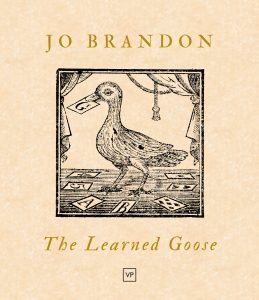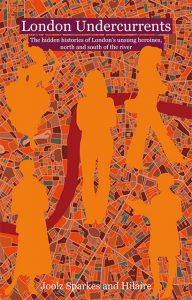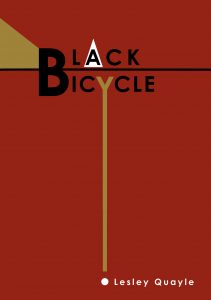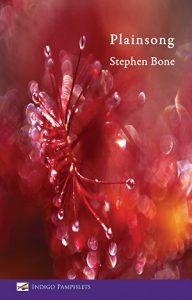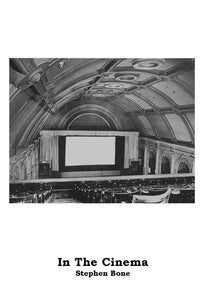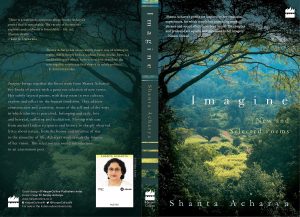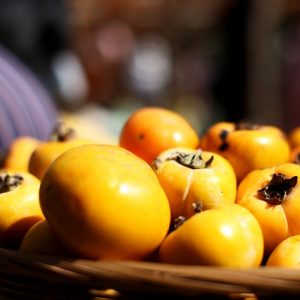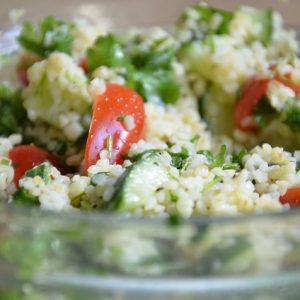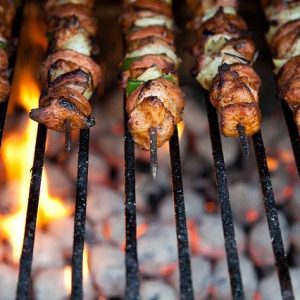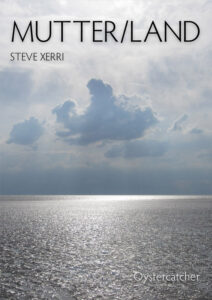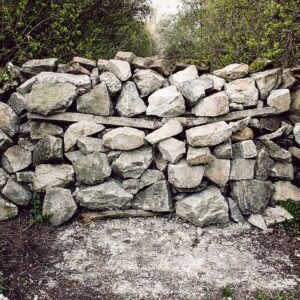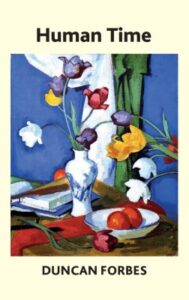Fruit
poems and stories
scroll down to read poems and stories in our
Autumn Issue
growing weekly from October to December 2019
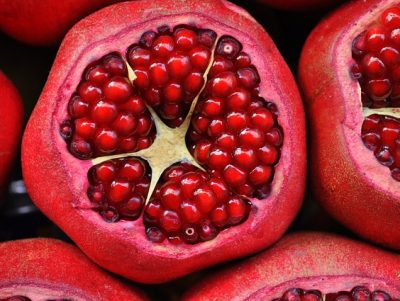
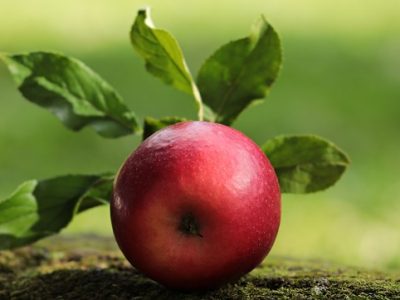
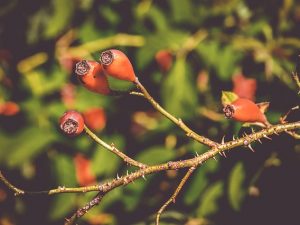
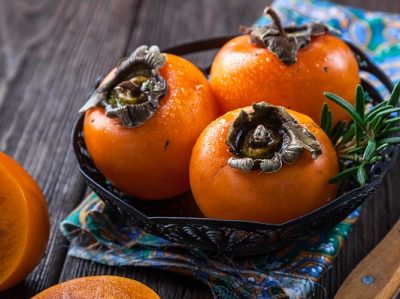
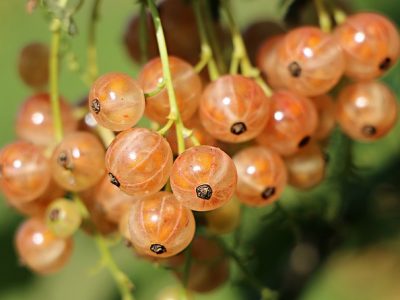
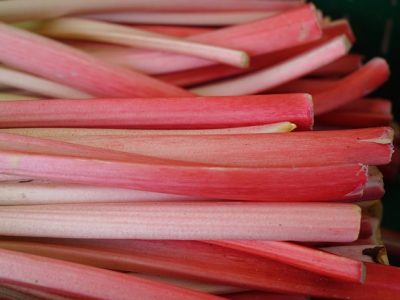
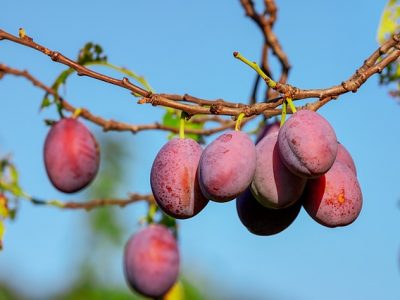
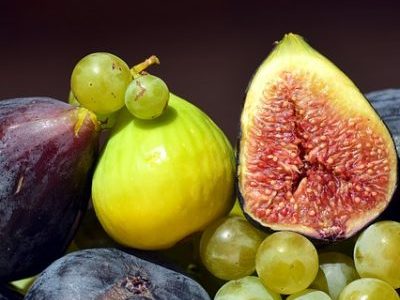
meet the poets and writers
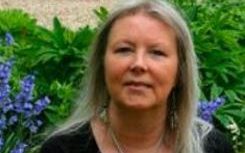
Lesley Quayle
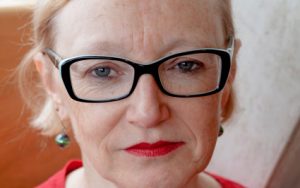
Hilaire
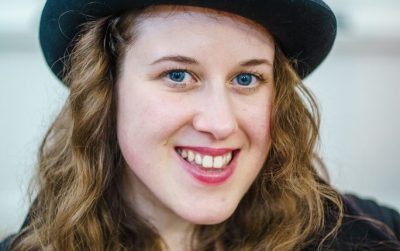
Jo Brandon

Lisa Reily

Allen Ashley

S.A. Leavesley

Stephen Bone

Kate Firth

Glenn Hubbard
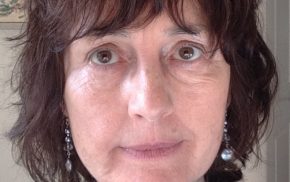
Pratibha Castle
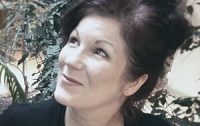
Maeve Bruce

Diane Mulholland
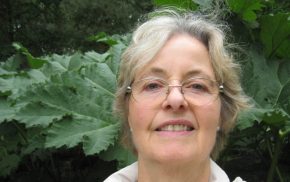
Lizzie Ballagher
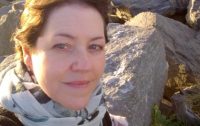
Eileen Farrelly

Shanta Acharya

Steve Xerri

Stephanie Stanton

John Lanyon
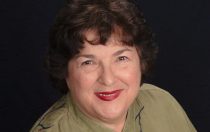
Diana Rosen
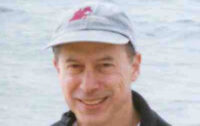
Steven Luria Ablon

Rachel Beresford-Davies
Fruit
Our first poem for autumn is by Lesley Quayle
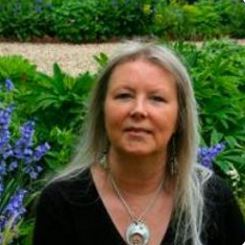
Lesley Quayle is a widely published, prizewinning poet, editor and folk/blues singer. She has a collection, Sessions, (Indigo Dreams) and a pamphlet Songs For Lesser Gods, (Erbacce) featuring her prizewinning series of sonnets of the same name. Her latest pamphlet, Black Bicycle, was published in May 2018 by 4Word Press.
Lesley Quayle – Fall
Fall
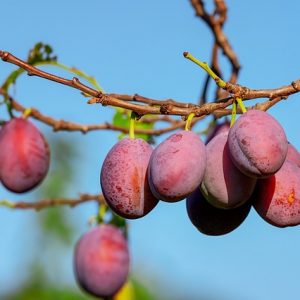
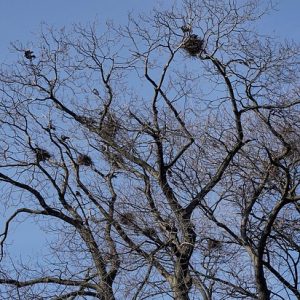
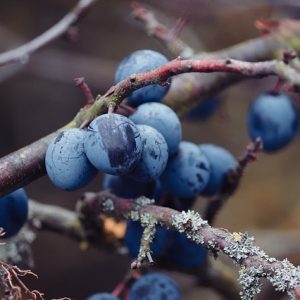
Now is the time for ripening plums and yellow grass,
maize shouldering the sky, hedgerows cut,
sharp and angular – the precise geometry of field edges.
I could lie down among vetch and rye-grass,
disturb tiny, starry moths, listen to the hungering
rooks and wait for the first leaf to fall.
I may squint at the low sun, hand-cast a shadow
over my brow, and watch the gauzy edge of autumn
fold over blackthorn, savour the chill of summer’s ghost,
let wilderness seep through veins, fill up the hollow heart,
a nest of root and twigs and stolen down, close my eyes
while drifting spiders weave their silk,
smirr my lashes to placate unfiltered light.
Stay there, ignoring tasks, the scratch and fret
of hour collapsing into hour, like scything nettles,
and maybe sleep, time marked by nothing more
than one leaf after another.
Lesley Quayle
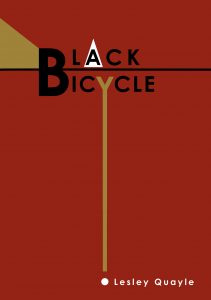
Four Mornings by Lesley Quayle

Jo Brandon is based in West Yorkshire. Her pamphlet Phobia and full-length collection, The Learned Goose, are both published by Valley Press. Her next collection, Cures, is due out in 2020. Her work has been published in a number of magazines and anthologies, including The North, Magma, Popshot, Strix, Butchers Dog and The Fenland Reed. You can find her at www.jobrandon.com
The Learned Goose is available to buy from Valley Press.
Jo Brandon – The Fall
The Fall
After ‘The Fall’, Hugo van de Goes, 1479

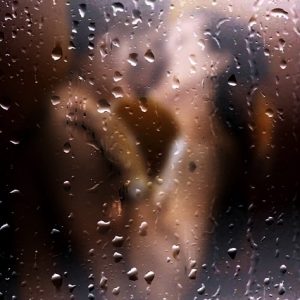
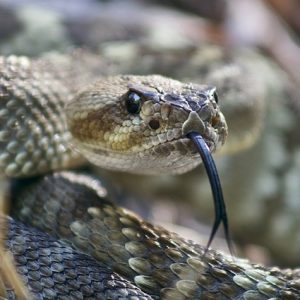

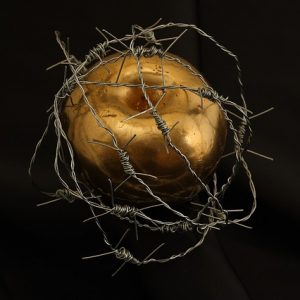
He was happy with my form
till he happened across yours.
Like any child the impulse is to play
not make; your limbs it seems
are more pliable and your hearts
more intricate.
So the fact that I could wind myself
into circles that inspired the sun,
tie myself into copulative knots,
make language in the sand,
meant nothing but more possibilities for you.
We lived together a good while – you wished
your tongue could read the air like mine,
I wished my eyes could talk.
We grew further apart.
Your hisses became syllabic,
you whispered to one another.
Tried to meet you in the middle:
hid in bushes growing legs
that lent no length, couldn’t bring me
any closer to your ear.
My face craved reflection,
stung with unread frowns and smiles.
I wish, I wish it were as simple
as a piece of fruit.
Truthfully, there was no taboo
hanging from that tree –
it was just where we played,
but your ideas grew quicker than trees
and you imagined fruits
that would never grow here
and they still won’t grow here
just as I don’t grow and everything
without you stays the same.
Jo Brandon
Previously published in The Learned Goose by Jo Brandon (Valley Press, 2015)
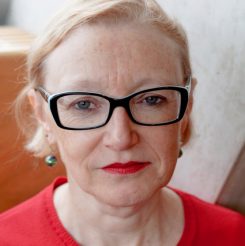
Hilaire is co-author with Joolz Sparkes of London Undercurrents, published by Holland Park Press. She was poet-in-residence at Thrive Battersea in 2017, and has poems published in numerous magazines and in three anthologies from The Emma Press.
For the London Undercurrents blog:
https://londonundercurrents.wordpress.com
Hilaire – specifications for an orchard
specifications for an orchard
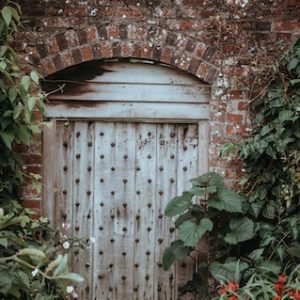
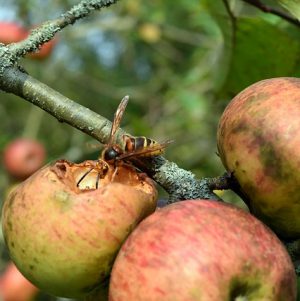
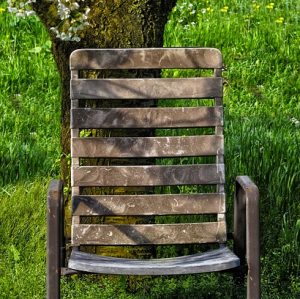
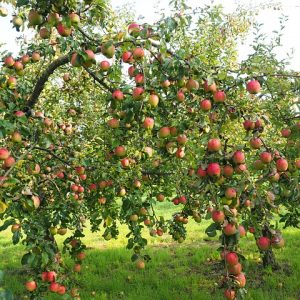
an old brick wall
as tall as a giant
bearded with moss and buddleia
curved like a protecting arm
a wooden door
in a throttle of brambles
its purpose long lost to itself
grass, wherever it can get,
each chlorophyll pennant
jostling for sunlight
a gang of pollen-traffickers
bizz-buzzing and flitting
a chair with no sitter
listing to starboard
and four fruit trees,
pear and apples,
left to get on with it.
their crop is bountiful.
there’s no sign in the orchard
against trespass.
Hilaire
First published in OL’ CHANTY – Chanticleer Magazine Online.
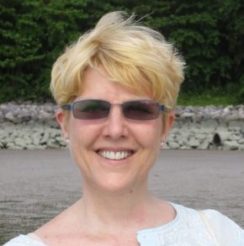
Lisa Reily is a former literacy consultant, dance director and teacher from Australia. Her poetry has been published in several journals, such as Amaryllis, London Grip, Panoplyzine, Magma Poetry (online) and Sentinel Literary Quarterly magazine. You can find out more about Lisa at lisareily.wordpress.com
Lisa Reily – Greek Sunset
Greek Sunset
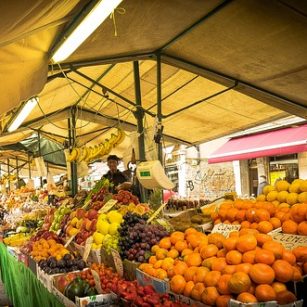

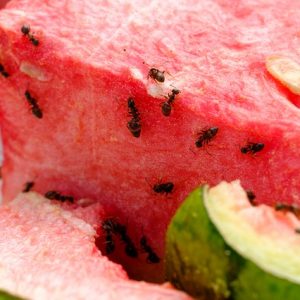
I have developed a patience for preparing food,
scouring markets in the heat
for the reward of pungent apricots, peaches and nectarines,
plump cherries and dirt-covered potatoes.
I love adding ice to a glass of retsina as we watch the sea in the evenings,
away from the thoughts and madness of the world,
friends and family;
a place to live, and just be.
We have a nasty colony of black ants under our backyard table
and other small ants of amber;
I spend hours watching them wrestle, bite each other to the death,
as I sip cool mineral water in the shade.
I have the time to see it, and sometimes I interfere,
or ache as I watch one drag its injured body across the concrete.
Lisa Reily
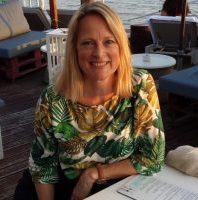
Formerly an actress, Kate Firth is a voice coach based in Barcelona. She has had poems published in various anthologies and magazines. Passionate about poetry as an oral as well as written tradition, she has performed at Bristol, Cheltenham and Winchester poetry festivals.
Kate Firth – Fruity Competition
Fruity Competition
1: Blackberry
I could be a black fruit poem:
richness of darkest choicest blackberry ripe,
juicy my tongue,
liquid Blueberry Delight with billberry.
A wilderness of bramble and thorn
a wicked thicket
enticing my wild dark words
with fleshy mellow flavour.
Rounding my mouth,
swelling my lips, staining
my fingers, my tongue,
guiltlessly shamelessly
announcing my appetite
for purple, for blue
and for you.
One word of me is not enough
you will want more
and more and one more
and just, perhaps,
one more.
You will come with fingers ready,
with buckets and with your children
and you will love me.
I will hide me in hedgerow,
and your children will find me
love me
and eat me before I am ready to ripe me.
And many times you’ll walk right past me
because you’ve forgotten
I am free for the picking.
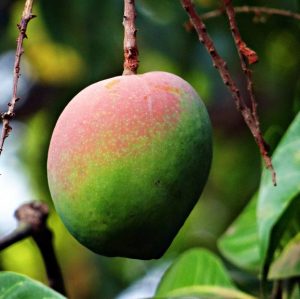
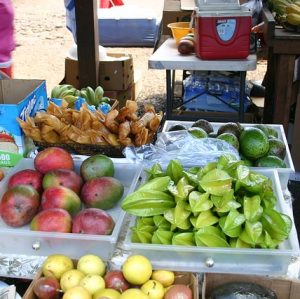
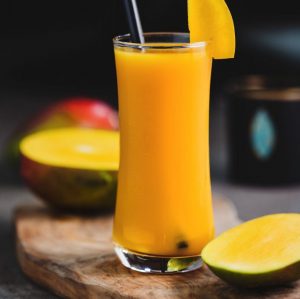
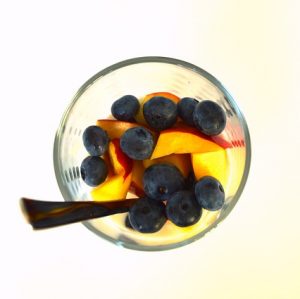
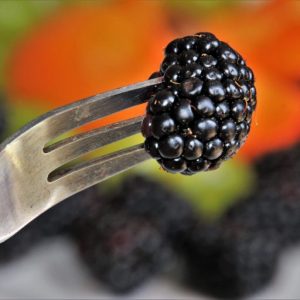
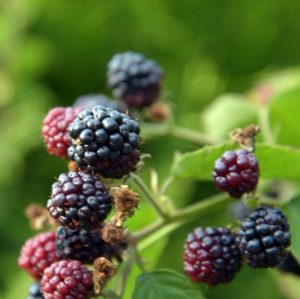
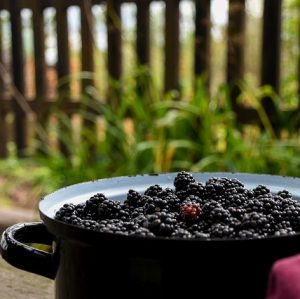
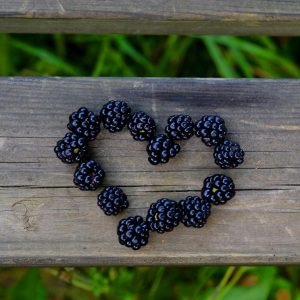
2: Mango
I could mango my words with exotic twist
and tang and peel and stone and sucking stone
and hair and watering tongue and lick and dissolve
to sugar your flesh.
Mango with southern scent of Mexico, India, Africa
so sweet within one skin
to outwit your blue blackberry dark forest competition.
I will win with mango slow go,
just wait for me to ripen, wait
for my words to arrive and surprise
and startle your eyes awide
and awaken your mind with tease and touch
and soft and silken sticky my caress.
Hold you my heaviness,
heavy my juice and catch me peel me
catch my liquid juicy in your cup,
slice me through or suck me whole,
but unpeel me first,
pierce me through my leather my skin my leathery skin
but wait for me first for my ripen
or I will not surprise and pleasure you.
Wait,
for my ripening
to drop from branch
onto your sunlit sill.
Kate Firth
The Yew Speaks On St Brigid’s Day by Kate Firth

Lesley Quayle is a widely published, prizewinning poet, editor and folk/blues singer. She has a collection, Sessions, (Indigo Dreams) and a pamphlet Songs For Lesser Gods, (Erbacce) featuring her prizewinning series of sonnets of the same name. Her latest pamphlet, Black Bicycle, was published in May 2018 by 4Word Press.
Lesley Quayle – Gathering Mushrooms
Gathering Mushrooms
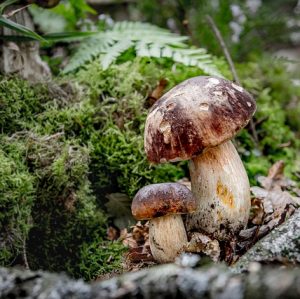
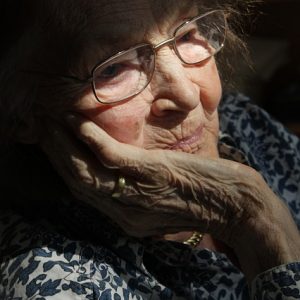
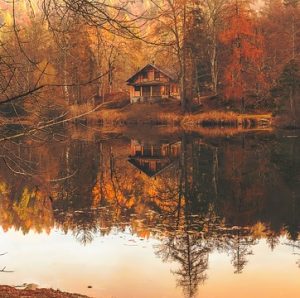
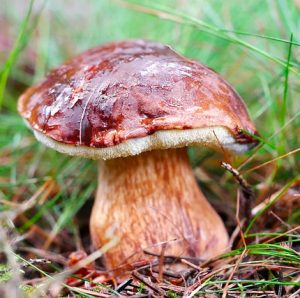
I met her in the early morning,
muttering through a whitewash of mist,
each footprint a wet hollow of silver
leading from mushroom rings
which nudged the leaf mould
like a clutch of bantam eggs.
Old eyes, their spawn of cataracts
scavenging light in dismal pools,
and words, more incantations,
spooling from her lips like broken
threads. She hastened by
with her cloth full of mushrooms.
She eats with the seasons,
gathers and garners as her folk did,
holds ancestors round her like a shawl.
She’s always known weather ways,
crush of snow on the blunt hills,
the tug and snatch of westerlies,
and spring igniting cold valleys.
Now she lives away from
the mother eye of the village,
with its carnival of light and noise.
Estranged by dogged pride,
deciphered like a seldom spoken tongue,
she clenches her world in a horned hand,
tight as the mushroom cloth.
Lesley Quayle

Lisa Reily is a former literacy consultant, dance director and teacher from Australia. Her poetry has been published in several journals, such as Amaryllis, London Grip, Panoplyzine, Magma Poetry (online) and Sentinel Literary Quarterly magazine. You can find out more about Lisa at lisareily.wordpress.com
Lisa Reily – sweet lemons
sweet lemons
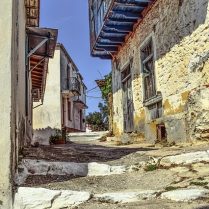
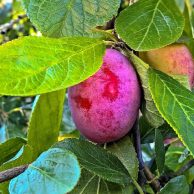
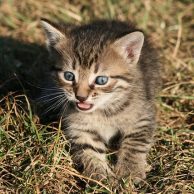
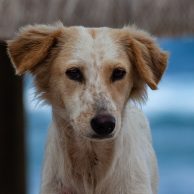
we climb the path, uneven stone,
reach the small wooden church on the hill;
we sit in the cool,
watch Bulgarian saints
eye us from ancient walls,
and small candles flicker
for those who have passed; I light one
for my mother,
and when I step outside, an old woman
plucks a plum from a nearby tree,
and gives it to me.
we travel on, over the railway track,
where a gypsy in a sparkling shawl waves to us
from a horse and cart,
a homeless kitten accepts my pat,
and horses, untethered, eat wildflowers.
outside our apartment, there is music in the air,
sirtaki, the sounds of Greece;
outside, a stranger collects me in the rain,
and I am not scared;
a little boy talks to me at the bus stop,
waits by my side
until his mother calls him home;
the taverna owner rescues a stray dog,
washes it, indifferent
to his customers who leave at the sight
of fleas drowned in poisoned rivers;
and at our small room, the owner’s son
cleans our clothes for free,
hangs bags of lemons from our door.
Lisa Reily

Glenn Hubbard has lived in Madrid for 30 years and has been writing poems since 2012. Though fluent in Spanish, he is poetic only in English and has had poems published in a number of magazines. Nature and landscapes are often an inspiration for his writing. Spain has a lot of both.
Glenn Hubbard – Fruit in the 60s
Fruit in the 60s
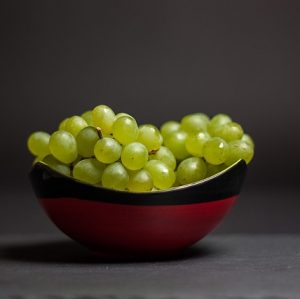
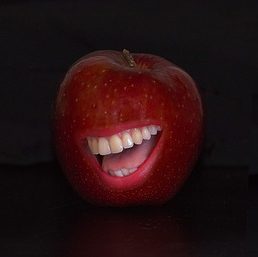
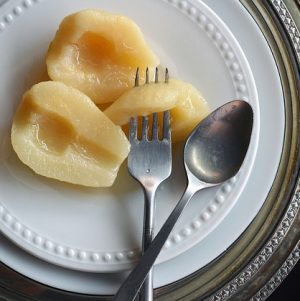
The grapes languished in a bowl in my nan’s living room,
losing their lustre as they dulled under dust.
They might have been ornamental, the stuff of still life.
Eating them felt like an afterthought.
Dinner was there to fill you up and puddings were entertainment.
But fresh fruit lacked all purpose except, it seemed, to keep teeth clean.
Hence that chimp on the TV screen, brandishing a toothsome
apple as the plummy voice-over lauded its evident dental hygiene.
Fruit could come out of a tin, of course, a totally different matter
as we gathered round the table to look on with drooling anticipation
as the sweet syrup supplied the required lubricity and
our afters slithered slurpingly into the waiting bowl.
There they lay, expectant, those halved pears
made in a place called Bartlett. Ice cream from
Naples slipped in beside them in a scandalously
calorific act of consummation. It was only natural!
Glenn Hubbard

Stephen Bone’s work has appeared in various journals in the U.K. and the U.S., and in numerous anthologies.
His first collection In the Cinema (Playdead Press) was published in 2014 and a pamphlet Plainsong (Indigo Dreams) was published in 2018.
Stephen Bone – Medlars
Medlars
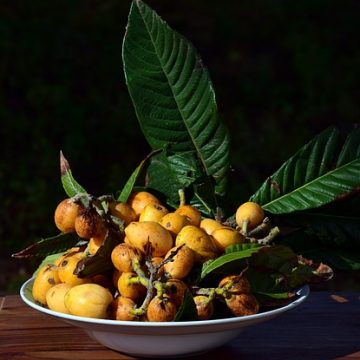
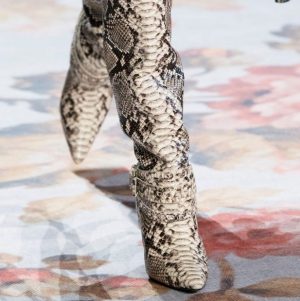
From the cupboard under your stairs
you pick one from its tray.
A sort of apple, open-ended,
on the turn.
Try, you urge, a spoon waved
like a hypnotist’s chain. Reluctantly,
a child braced for medicine I open up
to be fed a scoop of decay.
Good ? You ask, moist rot melting
to the cusp of sweetness. I tremble a nod
as you slough off your snakeskin boots;
coil yourself into a chair.
Stephen Bone
First published in The Interpreter’s House

Allen Ashley is co-editor with Sarah Doyle of the anthology Humanagerie (Eibonvale Press, UK, 2018). He has recently been published in anthologies from Black Hare Press and NewCon Press. He has previously appeared three times on the Words for the Wild website.
Allen Ashley – Strawberry Girl
Strawberry Girl
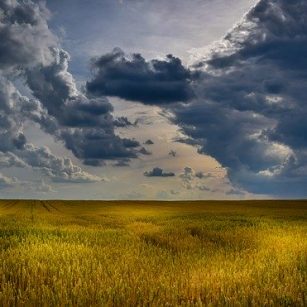
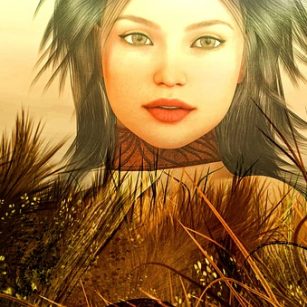

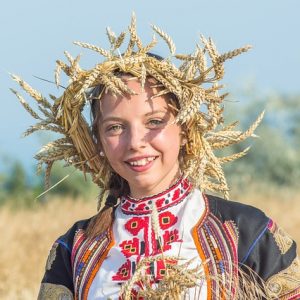
Soon it will be time again to prepare our offering in thanks for the fruit harvest. Many belief systems teach that life is a recurring cycle and our abundant continuum of planting, reaping and celebrating through sacrifice would seem to confirm this.
We have asked that our religious practices be properly recognised through official channels. The probing, the gawking, the constant trolling and threats of interference have to stop.
Her lips this year shall be a bright cherry. Just a hint of a pout. Straw and trimmed vines for her hair. In keeping with tradition, pears and certain varieties of apple have been used to give feminine curvature to her body. I have chosen strawberries for her eyes, complete with the small crown of leafage retained so as to give an open, honest expression to the face. The verisimilitude of this year’s golem is both striking and convincing.
Which brings its own problems. You may remember the court case where our village was accused of murdering one of our earlier creations. The judge rightly ruled that: as she was not human there was no case to answer. But the stigma stuck. A pungent, fermenting stain like mouldering grapes or cider spilled on woollen clothing.
The following year we made a boy. Nature did not approve and we half-starved due to a resultant paltry harvest.
It’s a truism that even those who are spiritually unaware would still acknowledge: for things to live, other things must die. Move over Granddad and let me have the keys to your house, your job, your bank account… For everything that glitters something else must suffer in dullness.
The strawberry girl lives for a week. She moves but doesn’t speak. She smells divine and many become light-headed in her company. She seems to see, to gaze… but can she really be thinking? She has no brain. She is all pith, water, citric acid, seeds… and flesh.
She brings colour and vivacity to the swiftly shortening and darkening days.
She dances with the corn dollies, stands face to face with the scarecrows. She is a country tradition that some in our country would seek to dispense with.
They are narrow-minded, urban consumer-guts who have no knowledge of and who can make no link between their fortune at endless choice and availability and the sacrifices and privations necessary to achieve such a cornucopia. I tell myself this and I share it with you now: the pulping is necessary. The few – the one – must fall so that the many survive and thrive.
She’s not real.
She’s real.
She’s not human.
She’s as alive as you and me.
There will be another year, another harvest. Another strawberry girl.
(In memory of Ursula K. Le Guin, 1929-2018.)
Allen Ashley
The Teatime Tarzan by Allen Ashley
Greetings from the British Countryside by Allen Ashley

Maeve Bruce is a professional storyteller – a writer, editor, journalist and poet. She writes about place and the unseen stories buried in the landscape, in nature, history and folklore. She draws a thread between the past and the present, reconnecting people with places and a sense of belonging. When she is not wandering around the Cotswold countryside where she lives, she can be found exploring the wilder landscapes of the British Isles or travelling to more distant places, notebook in hand. Read more about her work on her website:storiesofplace.co.uk
Maeve Bruce – Apples
Apples
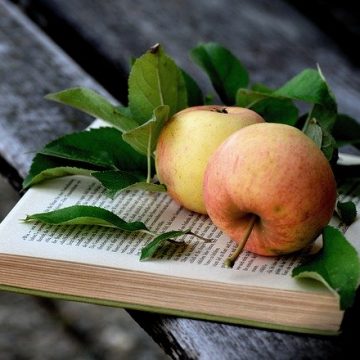
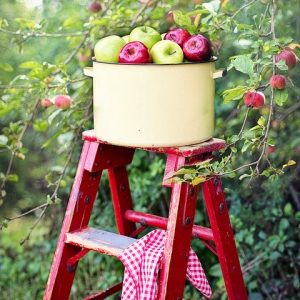
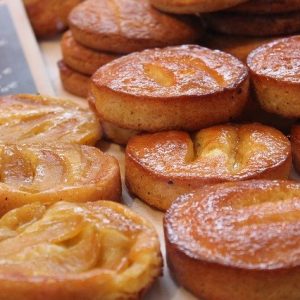
At my childhood home in Somerset, we had an acre and a half of old orchard, bound on the west side by the churchyard, on the north by a brook. In the spring, snowdrops and daffodils grew under the trees and when the weather got warmer, I took root there too, back against the bark, book in hand, dreaming beneath the leaves.
I read of saints and soldiers, wolves and witches, lost worlds, golden days. Those stories are bound in my memory with lichen growing on gnarly branches, the smell of wood and grass, earth and apple.
The harvest brought us all together. When it was fine, from the youngest to the oldest, we went out from the house in the morning with ladders, chattering and picking, gathering up windfalls, loading the trailer and hauling it back, calling across the field and bagging the yield into hessian sacks. We sorted the good fruit from the bruised, the eaters from the cookers, the bittersharps from the bittersweets. We ate bread and cheese on plastic plates without napkins at a trestle table in our wellingtons, normal rules suspended for one day, for just this one shining day in the orchard.
Afterwards, good apples were wrapped in paper and spread out in rows in the loft in the barn, gifts for the year long. The cinnamon scent of apples simmering on the stove filled the house, as my mother in her apron stewed fruit for the larder. My father made cider from the imperfect apples, the disappointing ones, with a press he built from a landrover jack just before he chopped the end off his finger splitting logs. I remember his shout and searching in the rough grass by the wood shed for a bit of flesh with the nail still attached. We never found it.
Some of the apples went to a big cider-maker at Burrow Hill. The man gave us a pound a sack and said they weren’t worth any more, apples were two a penny in Somerset. Any dreams we had of making our fortune quickly faded. He has gone now and the cider press closed and they built over our orchard, the people that came afterwards. But the apples stay ever sweet in the memory and their names remain, wonderful strange, like an old incantation – Beauty of Bath, Dunnings Russet, Curry Codlin, Fairmaid, Hangdown, Hoary Morning, Slack Me Girdle, Tom Putt, Sack and Sugar, Kingston Black, Rough Pippin, Whittles Dumpling, Green Pearmain, Mealy Late Blossom, Burrow Hill Early, Sheep’s Nose.
Maeve Bruce
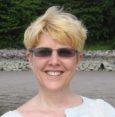
Lisa Reily is a former literacy consultant, dance director and teacher from Australia. Her poetry has been published in several journals, such as Panoply, Magma and Foxglove Journal. Lisa is currently a budget traveller with two bags, one laptop and no particular home. You can find out more at
Lisa Reily – wild strawberries
wild strawberries
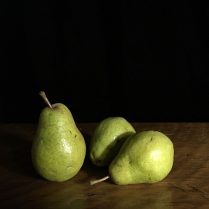

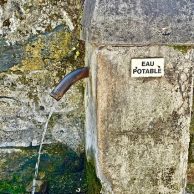
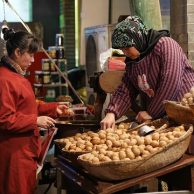
two hard pears that will never ripen
left on the table, beside the thermos your sister sent us.
outside the mountains, stolen by autumn;
it is time to move on.
there is peace here, in the river beyond the trees,
the courtyard fountain, the old bus that seems to be there
whenever we need it, and the little stray dog
alone now by the bus station,
his mother who knows where.
they were a gutsy pair who lunged into dirt
and the shadows of the day,
chased a car or two, over the night railway without fear,
barking freedom.
I pat him one last time,
feel his dirty face pressed against my legs;
I am glad for the bus drivers who feed him,
for his nous to keep away from the mean ones
who pass him only to piss in the bushes.
I recall our walk to St Spas’ grave, the moaning it took to get me there,
our first taste of wild strawberries, the two of us
only game after watching gypsy children
crouch low in the grass, pick their tiny red beginnings.
I will miss the spring water taps on every street,
the kitten at the tosteri drinking from a dirty mop and bucket,
her tiny face licked and satisfied.
when we arrived the air was green,
crisp with pine needles and apple trees;
now chestnuts fall, and walnuts fill crates at the markets,
the boxes of berries slowly diminishing.
Lisa Reily
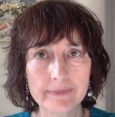
Inspired by her mother’s death, and a life-long dream of writing, Pratibha Castle completed a BA in English and Creative Writing in 2011 at the University of Chichester. Graduating with a first class honours degree, she continued exploring on their MA in Creative Writing. Winner of the NADFAS short story competition 2009, age range 13 – 17, long listed for the Pighog Poetry Competition 2010, her work has been published in Eunoia Revue, Poetry and All That Jazz, Wales Arts Review, Thresholds Short Story Forum, a Hedgehog Press Anthology, Postcards from the Edge, and Fly on the Wall magazine Chaos. Further to her love of words, Pratibha, a former singer and holistic therapist, loves to garden, walk in nature, swim in the ocean, and experiment with food. She is currently working on a poetry collection, and a novel set in 1960s Notting Hill and India.
Pratibha Castle – Pumpkin Blues
Pumpkin Blues
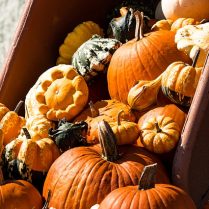




We collide at a pumpkin stall down Portobello Market.
You caress the silverblue
lustre of a Crown Prince,
I investigate the green mottle
of Kabucha, skin craggy, crumpled
as an old crone’s hopes
or rocky crevices about Olympus.
Yellow peel Turk’s Turbans glower in a pile.
We twirl, we swirl
beneath a hunter moon
into a dew glazed gloam,
tranced by the keen of a penny
whistle, banshee yowl
of a turf-fire fiddle.
Mammy cautions me not
to flaunt my heart upon my sleeve,
so I sit till after midnight,
illumined in her third degree
and first love’s fluster,
embroider right across my tit,
which you and later I will feel,
a plump crimson pumper,
brethren to the thorn snarled
muscle of the plaster Christ
enshrined beside the sapphire
Mary on the parlour mantle.
You wild eyed Ulysses. The twang
of your finger-lickin’ Gibson
plucks from me a young girl’s fancy
as the plight of your jeans, frayed
as nerves, suggests a stitch-up. I oblige
with bird track tack of rainbow hues infused
with moon-curse fantasies, disenchanted
come the morning
when I find you gone.
Pratibha Castle
First published in Eunoia Review

S.A. Leavesley is an award-winning poet, fiction writer and journalist. Overton Poetry Prize winner 2015, her pamphlet, How to Grow Matches, was published by Against the Grain Press in 2018. She has been published by the Financial Times and The Guardian, on Worcestershire buses and in the Blackpool Illuminations. An occasional climber and surfer, she also loves swimming, cycling, walking and being outdoors.
S.A. Leavesley – Still the Apple
Still the Apple

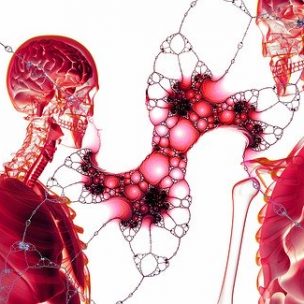
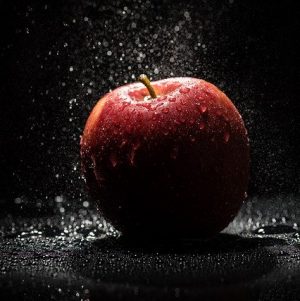
His mouth moon-craters my flesh,
curves tiny ribbons in flushed skin.
After gorging, he holds my skeleton
to the light, peers through small slits
between the ribs in search of a heart.
He does not find one, only the rust-
brown of the scalloped wounds left
by his teeth. Later, I’ll bleed black.
For him, little change now, except
his lips’ sometimes strained shape,
weighted down by past sweetness.
S.A. Leavesley
First published in Envoi, then in plenty-fish (Nine Arches Press)
The Disappearing River, Stream, Trickle by S.A. Leavesley
A Planet Where by S.A. Leavesley

Jo Brandon is based in West Yorkshire. Her pamphlet Phobia and full-length collection, The Learned Goose, are both published by Valley Press. Her next collection, Cures, is due out in 2020. Her work has been published in a number of magazines and anthologies, including The North, Magma, Popshot, Strix, Butchers Dog and The Fenland Reed. You can find her at www.jobrandon.com
The Learned Goose is available to buy from Valley Press.
Jo Brandon – A Fruit Basket
A Fruit Basket
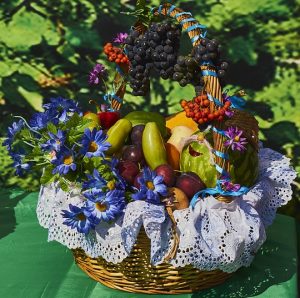
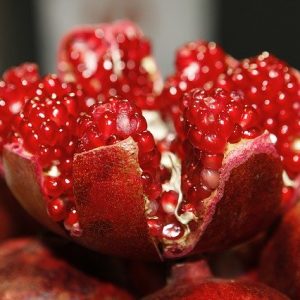
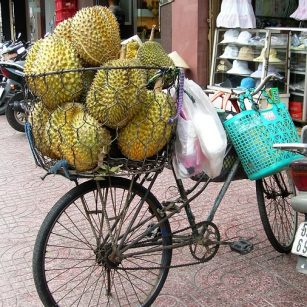
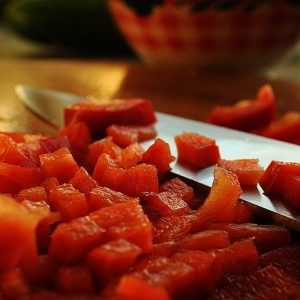
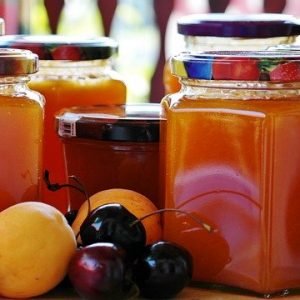
I won it
at this year’s garden party raffle,
afterall, this is the sort of village
where fine fruit is prized above
cellophane-wrapped chocolates
and cheap wine.
Cradled in a thick-woven wicker basket,
blanketed with muslin, tied with ribbon,
the kind you can put in a drawer
and use again. Pretty as a picture,
a shame really, to dismantle
and rummage.
Frog-skin melons nestle like eggs
in their straw lining, stony passion fruits,
a rudeness of pomegranates, green bananas;
a risk, could have spoilt the whole haul,
but they knew what they were about
putting all this together, the pears are perfect,
ready to eat, kiwis moulting softly, lychees peek
between loll-draped limbs bearing grapes:
a bacchanalia of treats.
How many markets did they visit
to accrue all this?
I had only ever seen cucamelons on television,
never held one, cool in my palm, like this.
I have a tin of Jackfruit in my cupboard,
from last year’s tombola, nothing akin
to this tight-curled hedgehog of a thing.
Sweet, putrid, syrupy, olid – a durian bristles
like a giant conker; a vanitas perhaps?
I peel, chop, slice, stew the stillness from my hoard.
I would have chosen a few more familiars
were it my role to select the prizes this year;
punnets of berries from my garden,
oranges and grapefruits, things to simply start the day,
apples too, of course, a lemon and lime for garnish,
but I am the recipient, not the donor,
I will be gracious, no point getting the pip
when I have the pith.
Jo Brandon
Previously published in The Learned Goose by Jo Brandon (Valley Press, 2015)
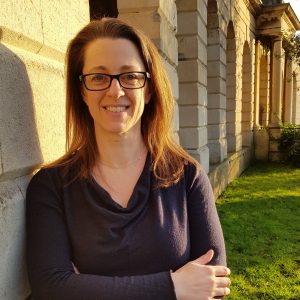
Diane Mulholland was born in Australia and now lives in London, where she can often be found beside the Thames. Her work has appeared widely in journals including Under the Radar, Long Poem Magazine and The Tangerine, and she recently completed an MA in Creative Writing at Manchester Metropolitan University.
Diane Mulholland – Moules en Provence
Moules en Provence
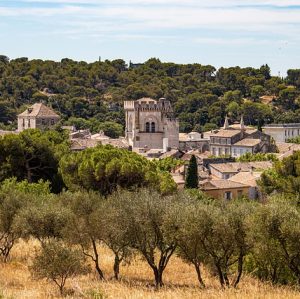
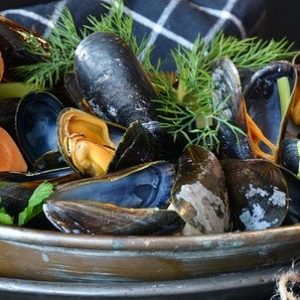
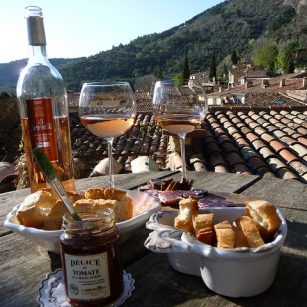
I can’t explain it all in French, but I
can show you, just as the old man
at the table next to us did that day.
How to take the first long shell
and use it like a pair of tongs,
scooping each mouthful out
and bathing them in cream and wine.
We were unprepared. For eating
seafood in the proper way, for the
heatwave which called for swimsuits
when all we had was jeans.
We marvelled as we drove past
actual olive trees and drank perfect
co-op wine at four euros a bottle.
If I could remember the name
of that restaurant, I would send you there
and show you that not everyone
will be bored and roll their eyes
at green young travellers, that some
will understand that this is just
the beginning of something.
Diane Mulholland
The Crab and the Gull by Diane Mulholland

Stephanie Stanton is a former science teacher, now teaching primary in a Medway school. Fairly new to writing poetry, she is an enthusiastic member of the mid-Kent Stanza group, occasionally performing at various open mic venues and has recently had a poem published in The Curlew.
Stephanie Stanton – Before the First Bite
Before the First Bite
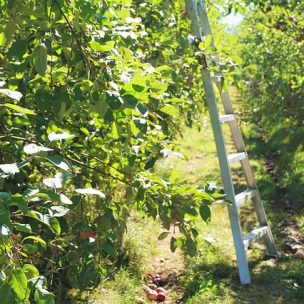
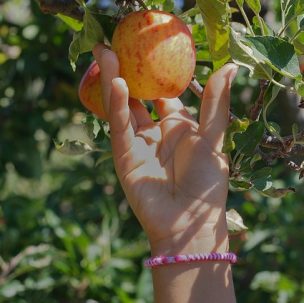
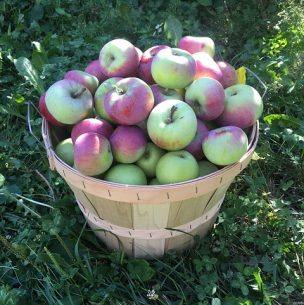
From beneath grey tarpaulin
perched on upturned crates
we push back our hoods
and inspect the fruit
both breathless. I was certain
we were lost forever, enchanted by
endless rows of jewelled giants until
we stumble upon the treacherous
ladders of our mothers. Harvest for them
is serious work; reaching precariously
stretching income. Neither can pick
the greater nuisance – us or the weather
The rustles, creaks and squeaks of our
waterproofs chatter sporadically
with the torrent as our tiny fingers chase
rain futilely from blushing contours
writhing at the cold trickles worming across
skin, growing branch-like tributaries under
gathered cuffs. Nowhere sees escape from
the damp.
We raise apples to wide mouths.
Stephanie Stanton
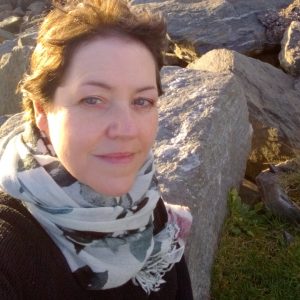
Eileen Farrelly has written poetry, intermittently, for most of her life. Although the subject matter varies widely, she is often inspired by the ordinary things that trigger long-forgotten memories. Her poems have recently appeared in Atrium, The Gladrag and Marble. She is also a musician and songwriter and can often be found singing for beer in various pubs around Glasgow.
Eileen Farrelly – Jam Tomorrow
Jam Tomorrow
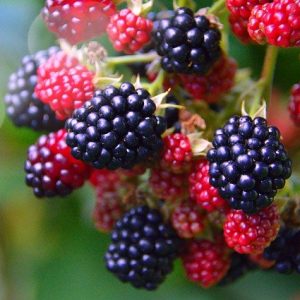
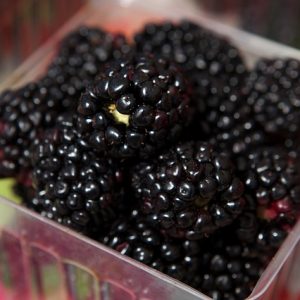
No need, these days,
when freezers heave
with tubs of glassy fruits
but something primal still propels us
down barbarous country lanes
basket in hand.
Discarding gloves, we offer blood
sacrifice in exchange for this
rich blistered berried abundance.,
Mouths seeping juice, baskets filled
to the brim, we bring them home
to be boiled, pulped, preserved
for colder days
when we will unfrock
each pot of its lacy frill
and release the genie of summer.
Eileen Farrelly

Shanta Acharya was born and educated in Cuttack, India. She won a scholarship to Oxford, where she was among the first batch of women admitted to Worcester College in 1979. A recipient of the Violet Vaughan Morgan Fellowship, she was awarded the Doctor of Philosophy for her work on Ralph Waldo Emerson. She was a Visiting Scholar in the Department of English and American Literature and Languages at Harvard University. The author of eleven books, her publications range from poetry, literary criticism and fiction to finance. Her latest is Imagine: New and Selected Poems (HarperCollins, 2017). www.shantaacharya.com
Shanta Acharya – Taste of Childhood
Taste of Childhood
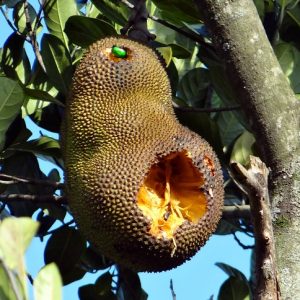
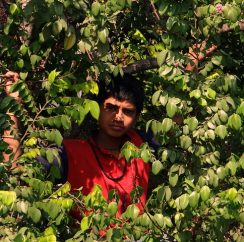
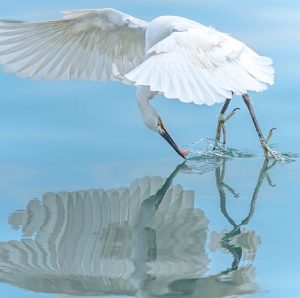
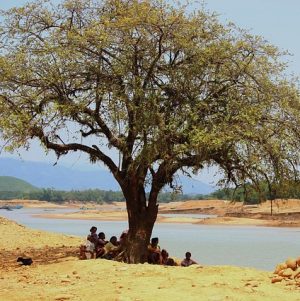
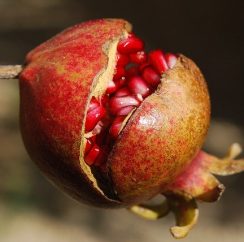
My tongue never forgot the taste of childhood –
the piquancy of pineapple, subtle flavours of jackfruit,
burst of honey in sugar palm, date, lychee and starfruit,
tangy zest of tamarind, sweet aftertaste of sour amla,
bitter neem and karela, the astringent bite of jamun –
the tree-climbing, limb-bruising days of magic,
plucking guava, papaya, sapetta, chasing butterflies
in the sprawl of grandfather’s grove that hugged the river
bustling with wild life and islands quivering
with its siege of herons practising their moves
while we spent orgasmic afternoons sucking
mangoes, munching raisins, almonds and cashews,
waiting for a flash of kingfisher’s indigo blue,
sipping nectar, sugarcane juice spiced with ginger –
when the world in your reach was for your pleasure,
and ghar, not bricks and mortar but a state of belonging,
Vilayat, the vast unknown out there, beckoning –
you a sapling born to stay put in the shade
of ancient banyan trees, not travel hopefully.
Who would’ve thought the sparkling laughter
of pomegranates would reduce you to tears,
and the ceremony of cracking open the hard exterior
carry you home to the tenderness of kernel in the belly
of coconuts, the soft, scented pulp of ripe wood-apples,
the tree born from the sweat of a goddess,
its sacred leaves offered in worship, transport you
to the inner sanctum of temples?
Like oranges, apples, bananas and grapes you make
a home of the world, holding your worlds together –
the place of your birth where all your efforts to escape
landed you in a place where all your attempts to belong
always point to a world elsewhere, leaving
you in-between, in the not-this-not-that state of being,
double helix of past and future wrapped round each other,
an afterwardness, dancing to the music of the present.
This persistence of memory is no ordinary thing –
a lifeline like mother’s milk, la dolce vita homecoming.
Shanta Acharya
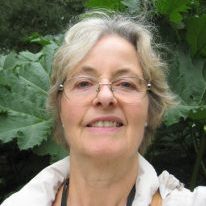
A published novelist between 1984 and 1996 in North America, the UK, Australasia, Netherlands and Sweden (pen-name Elizabeth Gibson), Lizzie Ballagher now writes poetry rather than fiction. Her work has been featured in a variety of magazines and webzines: Nine Muses, Nitrogen House, the Ekphrastic Review, South-East Walker Magazine, Far East, and Poetry Space.
She lives in southern England, writing a blog at
https://lizzieballagherpoetry.wordpress.com/
Lizzie Ballagher – Blackcurrants
Blackcurrants
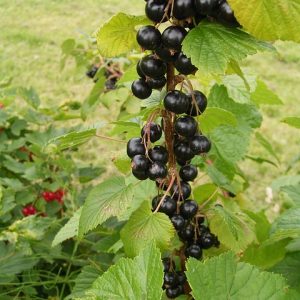
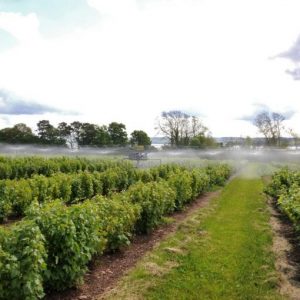
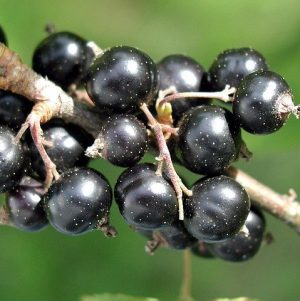
I hold the weight of light upon my palms:
Sprays and strands of wine-dark pearls strung
Perfectly from alchemy of rain & sun,
The pulse of summer’s hot & running blood
Shining, clotting on my fingers.
The heat of August sweetens, stains my hands
With fragrant orbs: purple, jewel-like (however small).
For now, I am summer’s queen again,
High on the handle-bar, riding aloft
Between rows & ripened rows of blackcurrants
On my father’s rotovator: around me the whiff
Of petrol & oil, the comfortable putt-putt
Of the churning motor as it chugs & chews
Through weeds & trampled ground.
With grubby hands I grab for currants,
Snatch at the light between the leaves.
Both escape my clutching fingers.
The dapple & ripple of green-starred growth
Flickers, skitters between them with nothing left
But the crimson smear of juice upon my skin:
The dazzling, fizzing, dizzy taste of fresh blackcurrants.
Lizzie Ballagher

John Lanyon lives in West Oxfordshire where he works as a gardener, linguist, musician and writer. He is approximately 25% of the poetry quartet The Four Wordsmen (www.fourwordsmen.com). John is excited by the secret lives of words, the play between the animate and inanimate world, the spirit of places. He thinks a poem has a kind of DNA and if you can find the first piece the rest will follow. It’s detective work. Tea helps.
John Lanyon – LEBANESE FOOD CENTRE, ACTON, NOVEMBER
LEBANESE FOOD CENTRE, ACTON, NOVEMBER
Persimmons peaches oranges
defy the rain.
Inside
chips and kebabs
tabouleh and Coca Cola ™
the fiery unfamiliar script
small armies of tins
press against each other
pickles and preserves
Nescafé® and halva.
Steel skewers
sheathed in ground lamb
line up.
The brass trough
the red-hot charcoal.
He wraps the salad
tight in the thin bread
anoints with the lemon
tahini olive oil mix
cuts in two.
Swarthy silent men
draw their over-patterned knitwear
closer to their bodies.
John Lanyon
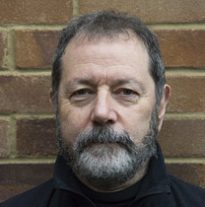
Steve Xerri has been a teacher, musician and designer. He was Canterbury Festival Poet of the Year 2017 and has been published in numerous print and online magazines. His first pamphlet Mutter/Land was recently brought out by Oystercatcher Press, from whose site it may be ordered http://www.oystercatcherpress.com/product-
Steve Xerri – On Slicing a Quince
On Slicing a Quince
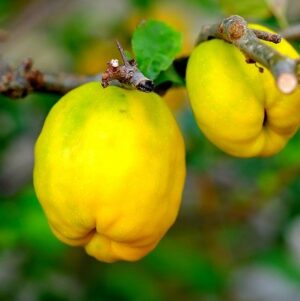
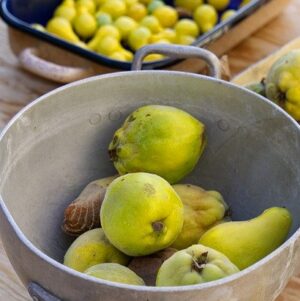
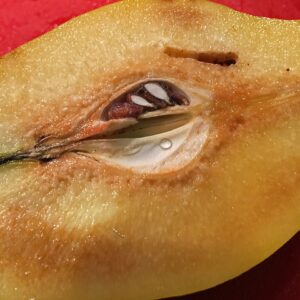
Hefty in my hand, knobbled, lopsided,
with starshaped brittle calyx, flocked
gold skin. Locked within, the acid-sweet
taste of slow-stored summer sun, promised
by the musky fragrance filling the kitchen.
The fruit’s hardness takes forceful working,
almost a carpenter’s knack, to pivot a blade
through the granular crunch and bisect
this descendant of Atalanta’s apple landed here
on my scarred board, revealing the asymmetric
offset of the core, each time slightly different,
the expected cluster of russet pips gleaming
in the light of day after months of sleep
lodged in their woody capsule. Always
the same end to the story, the sugared flesh
flushing in slow heat to tender carnelian.
Steve Xerri
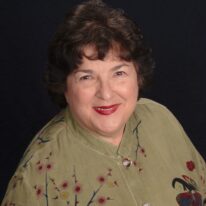
DIANA ROSEN’s essays, flash fiction, and poetry appear in many online and print journals and anthologies. In 2020, an essay will appear in “Far Villages” from Black Lawrence Press, and poems will be published in “The Book of Sighs” and the journals Existere Journal of Art & Literature, Poesis Journal, and The Reform Jewish Quarterly. Red Bird Chapbooks will publish her flash and poetry as “Love & Irony”.
Diana Rosen – Nectarines! It’s a Heckuva Fruit!
Nectarines! It’s a Heckuva Fruit!
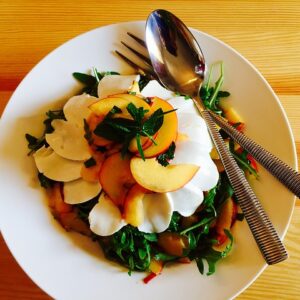
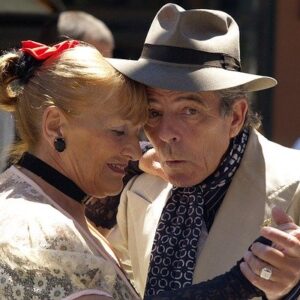
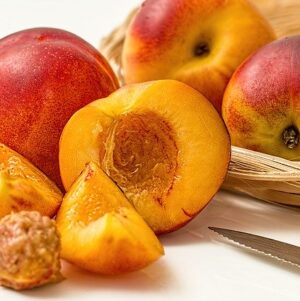
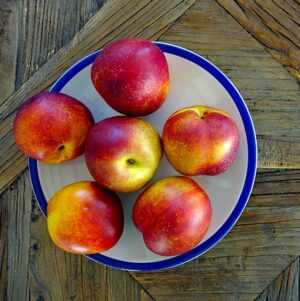
Juicy-warm from the sun, broiled with goat cheese
and honey, a must to bring my dad just to hear him
laugh, recite again from the Carl Reiner-Mel Brooks’
recordings of the “2000-Year-Old-Man.” The velvet-
caped man reveals he once dated Joan of Arc,
married hundreds of times, had 42, 000 children and
not one came to visit!!
“I don’t care. But they could send a note, write, ‘Howya, Pop?’ ”
True, Dad didn’t date Joan of Arc but he did date
Pearl, his memories kept in a thick album of Kodak
black and whites with their curvy edges slotted into
those triangled black corner holders pasted on dull grey
scrapbook pages with “Me and Pearl” captioned underneath.
Or, “Pearl and Me.” Or, my favorite, “Guess Who?”
That Mom had no compunctions about this totem
of his life before us said a lot about their marriage
‘til death did them part. My stepmother helped Dad
buy a new suit and tie to meet Pearl and her husband
for lunch following her surprise call. You know what
happened. A civil conversation. The longer ride home
than to the restaurant. The scrapbook returned to
the shelf. Dad didn’t even reach a century much less
two millennia yet to the end, smiled to see another
fuzz-less peach, that sweet nectar of summer, its tight
smooth skin not unlike Dad’s, with its signature blush
of red. I still miss our calls.
“Is this the writer, or the other one?”
“Howya, Pop?”
“What’s the secret to your long life?” Reiner asks,
“Nectarines! I love that fruit. It’s a heckuva fruit.”
Diana Rosen
Previously published online by Poetry Super Highway

Steven Luria Ablon, poet and adult and child psychoanalyst, teaches child psychiatry at Massachusetts General Hospital and publishes widely in academic journals. His poems have appeared in numerous anthologies and magazines such as The Brooklyn Review, Ploughshares, and The Princeton Arts Review. He has published five full collections of poetry including Tornado Weather (Mellen Poetry Press, 1993), Flying Over Tasmania (The Fithian Press, 1997), Blue Damsels (Peter E Randall Publisher, 2005), Night Call (Plain View Press, 2011), and, most recently, Dinner in the Garden (Columbia, South Carolina, 2018).
Steven Luria Ablon – My Giant Bladderstone
My Giant Bladderstone
Accretion year after year
my unknown companion,
should I be proud,
my very own pregnancy?
If I had known would I
have talked to it like a friend?
Torn meniscus, cracked vertebrae,
hemorrhage in the right eye,
I adjust as if there is no deficit
but peeing is another matter.
As my prostate grows, I think
only of the next bathroom,
when to pull over on a country road,
when to search for Depends
like my forgotten days in pull-ups.
Today my surgeon blasts it
with the newest laser leaving
sand fine as a Caribbean beach.
Now I have infinite time
before that bathroom stop.
I listen to a torrent in the bowl.
Have I grown younger?
Steven Luria Ablon

Duncan Forbes’ poems have been published by Faber, Secker and Enitharmon, who brought out a Selected Poems, Lifelines, in 2009. It was drawn from five previous collections. Awards and prizes include a Gregory Award, TLS/Blackwells Prize, two Stephen Spender Times Translation Prizes and a Hawthornden Fellowship. A painter as well as a poet, he read English at Oxford and has taught for many years. Now retired, he lives in Gloucestershire. His latest collection is Human Time (2020). See www.duncanforbes.com
Duncan Forbes – A Better Berry
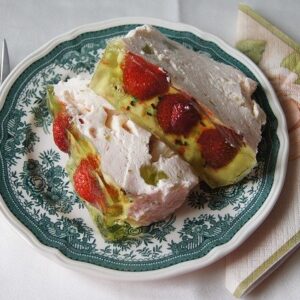
A Better Berry
“Doubtless God could have made a better berry,
but doubtless God never did.”
Dr Boteler quoted by Izaak Walton
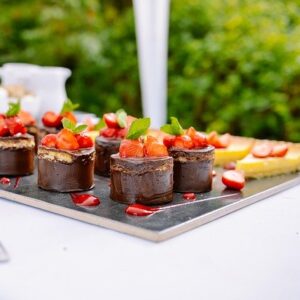
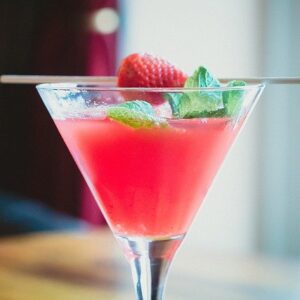
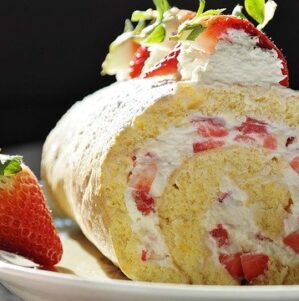
Reach down between the green serrated groves
And feel for berries’ ripened crimson selves
Wearing their seeds like buttons on a sofa,
Twiddle the six-point star of Bethlehem
Between your pink forefinger and your thumb
To reinvent the wheel with leaf and stem,
Then with some Amaretto – just a splash –
Taste at its best, sun-ripened and picked fresh,
The veiny brainwork of the sweetened flesh
With caster sugar crystals by the spoonful
And cream poured in a languid waterfall
Onto the waiting strawberries in a bowl,
Then savour both the shape in the saliva
And that infallible midsummer flavour
As if you were in love and it your lover,
Moving the proof from lips to uvula
And swallow, swallow till the fever’s over,
As if in heaven and an unbeliever.
Duncan Forbes
